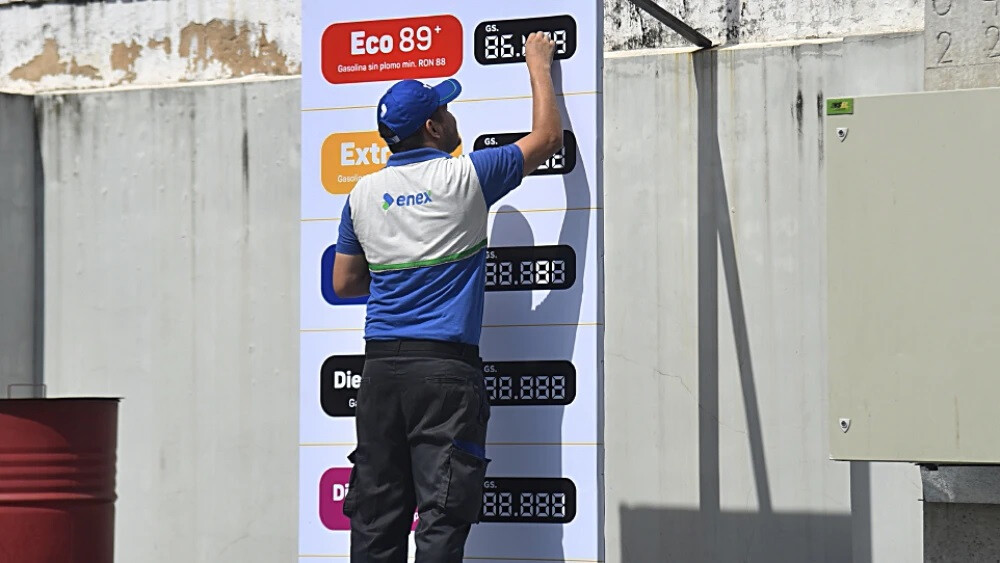
As expected, private refineries have also decided to lower their fuel prices, following the lead of the state-owned oil company Petropar's price reduction. Petropar had implemented a decrease of 300 guaraníes (PYG) per liter last Monday.
Immediately after the government's announcement of fuel price reductions, major domestic refineries such as Shell and Copetrol promptly joined the price cut. Starting Tuesday, other refineries including Petrosur, Petrochaco, Petrobras, Puma, and Enex have successively joined the price reduction trend.
Private sector officials stated in an interview with the local newspaper <Última Hora> that they believed the conditions for a price reduction were not in place, considering the high dollar exchange rate and transportation issues due to disruptions at the Bermejo border crossing. Nevertheless, they added that they had no choice but to follow the commercial strategy of the state-owned company Petropar.
With this fuel price reduction led by Petropar, regular diesel will be sold at 7,190 guaraníes per liter, regular gasoline at 6,130 guaraníes per liter, premium gasoline at 7,980 guaraníes per liter, 93-octane gasoline at 6,630 guaraníes per liter, and premium diesel at 8,990 guaraníes per liter.
Petropar Implements Price Reduction Due to Lower International Oil Prices and Supplier Discounts
Adalberto Acuña, Chief of Staff at Petropar, explained in an interview with <Última Hora> that the fuel price reduction was based on the drop in oil prices in the international market and discounts secured from suppliers.
This price reduction by Petropar applied a different method than the usual average price calculation. Typically, the average price is calculated after new fuel at the new price enters the state-owned oil company's tanks, but this time, the calculation was exceptionally made proactively.
Petropar Plays Role in Regulating Market Prices Through Competition
The state-owned oil company Petropar operates 285 gas stations nationwide, which accounts for approximately 17% of the total 2,750 gas stations in the country. Currently, Paraguay's fuel market consists of 23 refineries, and Petropar plays a role in regulating domestic fuel prices through market competition.
Bermejo Border: A region located on the border between Paraguay and Argentina, where logistical movement has been disrupted recently due to social unrest in the surrounding areas. This has also affected fuel transportation, causing an increase in transportation costs. Dollar Exchange Rate: Paraguay's currency, the guaraní, is weak against the US dollar, which is one of the main factors contributing to the rise in the price of imported goods such as fuel. Paraguayan Fuel Market Structure: Paraguay's fuel market has an oligopolistic structure consisting of the state-owned company Petropar and a number of private refineries. Petropar's pricing policy has a significant impact on the pricing decisions of other private refineries. This fuel price reduction can be seen as a result of the combination of external factors such as the drop in international oil prices and Petropar's proactive price reduction policy. However, private refineries still appear to feel burdened by the price reduction due to the high dollar exchange rate and logistical issues. It is worth noting what long-term impact Petropar's preemptive price reduction will have on the domestic fuel market.
[Copyright (c) Global Economic Times. All Rights Reserved.]




























